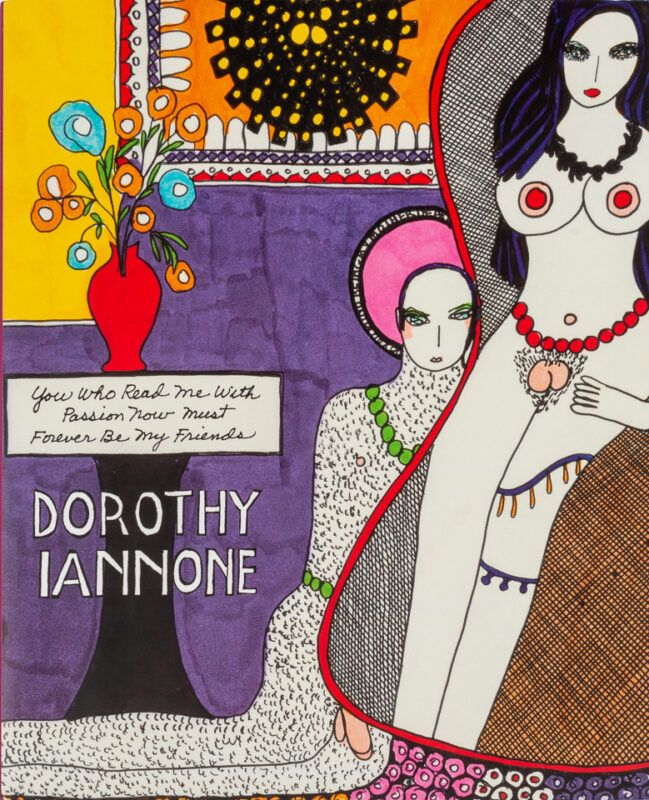It Is Almost ThatA Collection of Image+Text Work by Women Artists & Writers
Lisa Pearson (editor)

use code “turnthepage” for 15% off this title through 1/31
cloth, 8.25 × 10.25 in.
292 pages, over 250 bw
978-0-9799562-6-3
published in 2011
Because the frame is image+text, we’re reminded that all of us generally do more. Female artists don’t just stay in their disciplines; we experience, we forage, we play. Intuitively and practically speaking, It Is Almost That is, in effect, a handbook. It, by presenting female art history, shows us how to be an artist.
—Eileen Myles, The Poetry Foundation
It Is Almost That collects twenty-six visionary image+text works by women artists and writers. Supremely imaginative in their use of word and image, these hybrid works are steeped in narrative play and subversion, inviting readers to engage in multiple modes of reading. It Is Almost That features substantial excerpts or the works in their entirety—many previously unpublished, difficult to find, or long out-of-print—by renown, little known, forgotten, and emerging artists.
The works include a painted autobiographical novel by a young artist who died in the Holocaust (Charlotte Salomon); the transformation of the front pages of newspapers into alchemical drawings (Suzanne Treister); a computer-generated chance operation that “imagines” houses and their inhabitants (Alison Knowles); the pseudo-scientific examination of mother-daughter conversations (Eleanor Antin); and drawings called “body maps,” inscribed with stories of HIV-positive South African women (Bambanani Women’s Group), among almost two dozen others.
Arranged as a constellation with various kinds of connective tissue, It Is Almost That eschews traditional categories in order to reorient the reader to see the works outside or beyond their recognizable affiliations. Both literary and art audiences will discover new works, new artists and writers, as well as new ways of reading.
Contributors: Eleanor Antin, Bambanani Women’s Group, Fiona Banner, Louise Bourgeois, Theresa Hak Kyung Cha, Cozette de Charmoy, Ann Hamilton, Jane Hammond, Susan Hiller, Dorothy Iannone, Bhanu Kapil & Rohini Kapil, Helen Kim, Alison Knowles, Ketty La Rocca, Bernadette Mayer, Adrian Piper, Charlotte Salomon, Geneviéve Seillè, Molly Springfield, Cole Swensen & Shari DeGraw, Suzanne Treister, Erica Van Horn & Laurie Clark, Carrie Mae Weems, Hannah Weiner, Sue Williams and Unica Zürn.
read
Afterword by Lisa Pearson and the complete biographies of contributing artists and writers
press
Learning to read art, as Lawrence Weiner long ago exhorted, is not a simple process. Where the textual meets the visual, demands outnumber easy pleasures. It Is Almost That is rich in both challenge and satisfaction. … One thing It Is Almost That urges forcefully is alertness not only to how image meets text in artists’ pageworks, but also to how sequence meets sheet—how the rhythm of reading a book can be folded in to the experience of looking at a single page, and vice versa. It stages conversations across racial, ethnic, geographical and historical boundaries that feel natural. The absence of men feels similarly unforced; these are, simply, the kinds of discussions women have among themselves.
—Nancy Princenthal, Art in Print
While Pearson’s penchant for this open, indeterminate state might seem at first to evoke categories like ecriture feminine, twentieth-century Language-school poetry, or non-diegetic experimental filmmaking, her selections, works produced over a span of seventy-one years … defy easy classification … Pearson’s boldest editorial move is bringing together works by artists and writers who are not normally thought of together. Pearson’s genre-defying conflation of formalist language-based work with pieces by confrontationists such as Adrian Piper, Carrie Mae Weems, and Sue Williams suggests new affinities. Pearson’s writers and artists use disparate means to probe experience from the outside.
—Chris Kraus, Bookforum
Read more reviews at The Comics Journal, Diagram, HTML Giant, Hyperallergic and Publishers Weekly.
see also
✼ elsewhere:
“In my opinion, genre is a way of speaking about conventions of reading and looking, where you sit or stand and whether you’re allowed to talk to other people or move around while you’re communing with an object or text.” —Lucy Ives, from her interview with Karla Kelsey in Feminist Poetics of the Archive at Tupelo Quarterly
[...]


